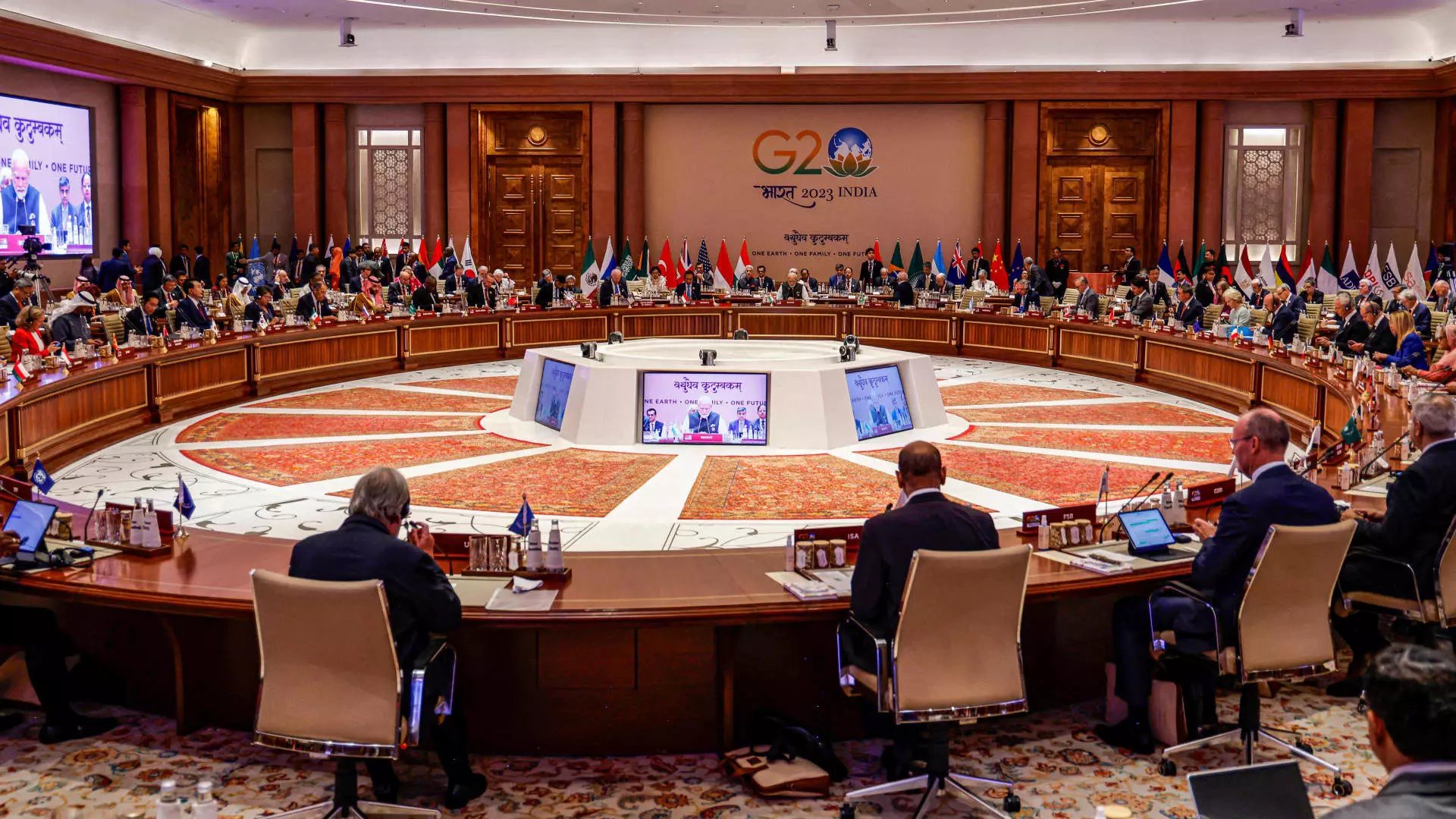In a significant move at the G20 leaders’ summit in Delhi, Indian Prime Minister Narendra Modi announced the admission of the African Union (AU) as a full permanent member of the Group of 20. This decision marks a pivotal moment in India’s G20 presidency, as it emphasizes the country’s commitment to inclusivity and elevating the Global South’s role in global affairs. The AU’s integration into the G20, alongside the European Union, reflects India’s determination to foster a “spirit of togetherness” and empower developing nations on the world stage.
Prime Minister Modi emphasized that India’s G20 presidency symbolizes inclusivity both within the country and on a global scale. The concept of “Sabka Saath,” meaning togetherness, guided India’s proposal to grant permanent membership to the AU in the G20. By extending this invitation to the AU, India demonstrates its commitment to amplifying the voices of African nations and promoting their interests within the G20 framework.
Upon announcing the AU’s membership, Prime Minister Modi warmly welcomed AU Chairperson Azali Assoumani to the conference table of permanent G20 members. Assoumani, who is the president of the Comoros, an archipelago off the east coast of Africa, was invited to participate in discussions and contribute to shaping the G20’s agenda. The move was met with enthusiasm from other world leaders, including Charles Michel, the president of the European Council, who praised India’s initiative and celebrated the African Union’s full membership in the G20.
The G20 summit holds particular significance for Prime Minister Modi, who sees India’s G20 presidency as an opportunity to enhance the country’s geopolitical standing ahead of the upcoming national elections. Additionally, India’s emergence as one of the world’s fastest-growing economies has caught the attention of governments, investors, and businesses, particularly as China’s growth rate slows down. By leveraging the G20 presidency, India aims to address pressing global issues such as climate action, food and energy security, financing for developing nations, debt restructuring, and the regulation of cryptocurrencies.
Against the backdrop of shifting global alliances, India aims to present its deepening strategic partnership with the United States as a viable alternative for the Global South. From matters of food security to debt resolution, India seeks to persuade African nations and other developing countries that aligning with the United States can serve their best interests. Nigerian Foreign Minister Yusuf Tuggar stressed the importance of Africa taking charge of its own interests, emphasizing that African countries are capable of protecting themselves and making informed decisions.
The G20 summit in Delhi brings together prominent world leaders, including Justin Trudeau, Emmanuel Macron, Olaf Scholz, Fumio Kishida, Mohammed bin Salman, Recep Tayyip Erdoğan, and Joe Biden. However, the absence of Vladimir Putin and Xi Jinping is notable, as both Russia and China objected to the wording of the summit’s discourse regarding the war in Ukraine. Russia’s Foreign Minister Sergey Lavrov and China’s Premier Li Qiang are representing their respective countries instead. The absence of Putin and Xi raises concerns about the issuance of a communique binding member states, which could undermine India’s influence and dilute the domestic messaging surrounding the summit.
India’s proposal to include the African Union as a permanent member of the G20 serves as a testament to the country’s commitment to inclusivity and empowerment on the world stage. With the AU’s admission into the G20, India aims to amplify the voices of African nations and promote their interests within the global multilateral forum. As India assumes its G20 presidency, it is poised to address critical global challenges and advocate for the Global South’s priorities. By leveraging its strategic partnership with the United States and engaging in dialogue with world leaders, India seeks to shape a new direction for the 21st century and overcome the crisis of mutual trust that plagues the world.


Leave a Reply